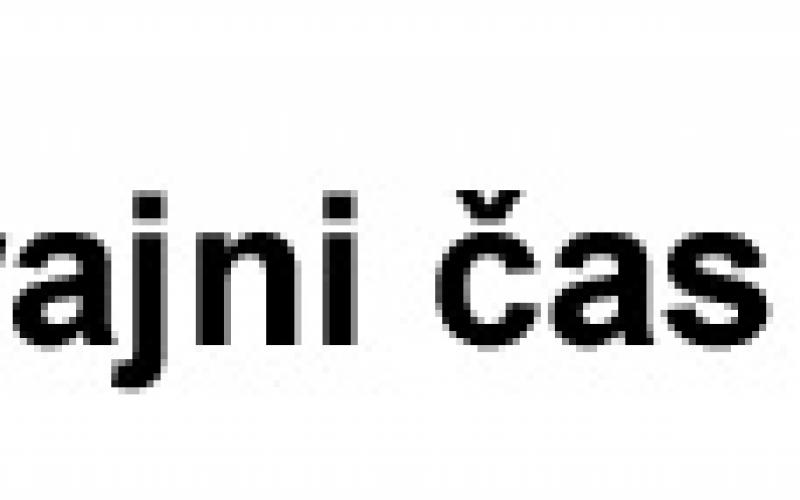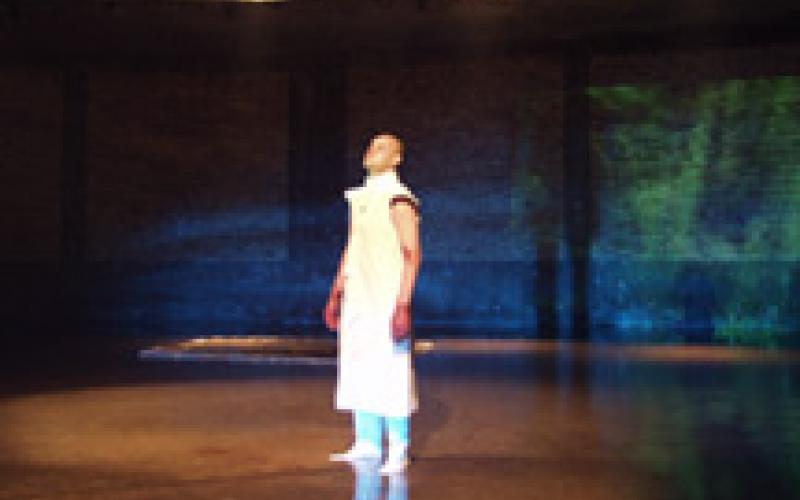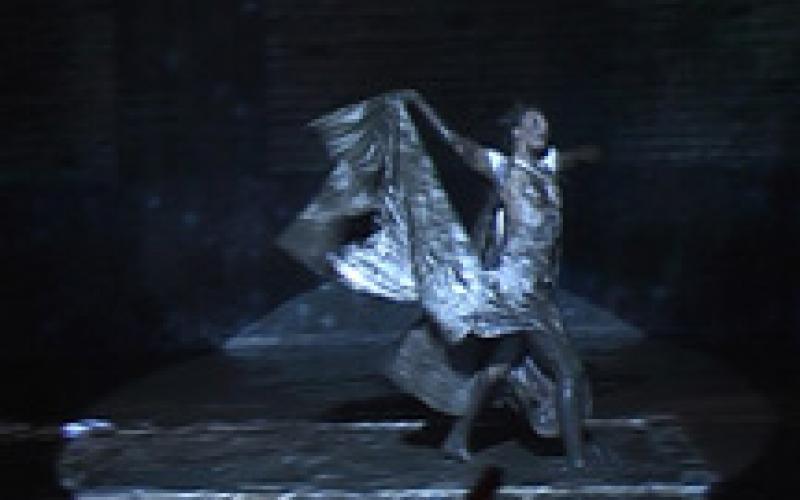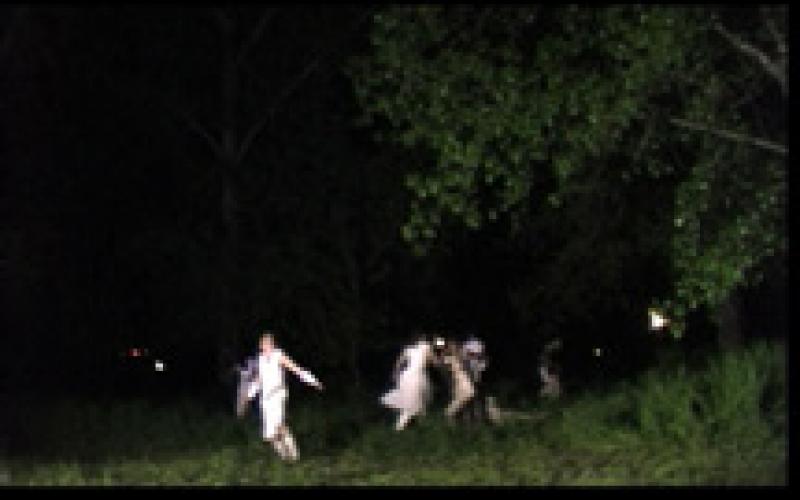"King of the Forest", a multimedia pseudo-opera
KING OF THE FOREST OR AN ATTEMPT TO GET DIRTY A Tale "King of the Forest or an Attempt to Get Dirty", Slobodan Tišma "King of the Forest", multimedia pseudo-opera Short story: Slobodan Tišma "Trans_European Forum: Art and Media in Transition", May 2004 KING OF THE FOREST OR AN ATTEMPT TO DIRT with nature, with animal homeostasis.”Slavoj Žižek, The Sublime Object of Ideology
What is the essential dilemma hidden in the story from which Slobodan Tišma's opera“ King of the Forest or the Attempt to Get Dirty ”originates? Or, what is the dilemma we face at the Petrovaradin Fortress, the construction site on the banks of the Danube, on the night of the "welcome of Europe", and how clearly can we recognize the message that these two events exchange? The story of creative loneliness, non-belonging and dedication, is set, it would be said, in the recent past, in the urban everyday life of a society whose face is the empire at sunset. By arranging general concepts (place, time, cultural circumstances…), the author draws us into the inner drama of a misunderstood artist, in this case not at the beginning, but at the very end of his career. His conflict with society is mutually existential in nature: what is a basic need for the artist and the only possibility to survive, for the environment is unbearable noise, work out of context. Behind the "harmony" of small and banal situations, behind what has already been seen and experienced, one can sense a whole series of contradictions: our hero is a "true artist", a real rarity, a creator who sincerely enjoys singing out of love. Without ambition and the idea of success, with the career of an episode behind him, he is not able to react to the rules and limits of the art system… As a result, only in a situation of passivation, ie. "creative pensions" he becomes active and exciting for society. His presence in the immediate vicinity causes a drastic shift in the usual hierarchy of production and consumption: the need for singing is too strong and impossible to limit and adapt to any ambiance… The artist no longer feels welcome in the city, leaves its streets and goes to the only possible place, on the border that separates the cultural context of urban conditions from its contradictions, in the semi-darkness of the forested riverbank, on the mythical place under the city walls. What follows then is only the only possible outcome - proof that the impossibility of realizing the artist/man as a harmonious being is permanent. Like a prosthesis or some similar orthopedic aid, at the place of human connection with nature, there is a "noble" cultural content determined by a very clear context. The moment the mechanism that verifies the place of creation in society disappears, the moment borders become irrelevant, events assure us that it is impossible to restore balance. The question of the systematization of values and their traumatic potential in the absence of a standardized environment is posed here in the body of the metaphor of the artist and his wild half-brother, King of the Forest. What, after all, could be the internal context that determines the meaning of this event in the historical moment of elevated symbolic values? At the beginning of this story, the author of the libretto for the (opera) event, Slobodan Tišma, is the leading anti-authority of the Novi Sad art scene in recent decades, one of the actors of the conceptual avant-garde of the 70s and frontman of the most important rock groups of the NS-wave scene of the 80s. In recent years, his increased poetic activity has been noticed, but also the practice of a silent speaker in front of a small number of guests at rare public gatherings, most often organized by close friends. Slobodan Tišma is, quite logically, both a big fan of opera and its shy conspirator. From there, his story about the opera singer can be interpreted as a kind of intimate mystification of his own experience, as a statement of a silent and withdrawn artist (without a career) ... On the other side of the story is "Art", in our case Opera, and its derivatives. Opera is pointed out here as an authoritarian mechanism of the art system, but also as a possible territory of creative asceticism, as an intimate experience… Although seemingly in the background, the story of the spectacle and its other, human side, what remains is the relationship between art, its resources and (implicit) limitations. In that sense, what we can do is understand this work as a sublimation of all possible distinctions of art and ideology that can be imagined in the territory we inhabit (mentally and physically). Vladimir Tupanjac, art historian, co-editor of the project "Permanent Art Hour" King of the Forest Text: Slobodan Tišma, Novi Sad; Director: András Urbán, Subotica; Composer: Ernő Verebes, Senta; Costume designer: Tünde Varga, Pécs; Film director: Sabolč Tolnai (Sz




